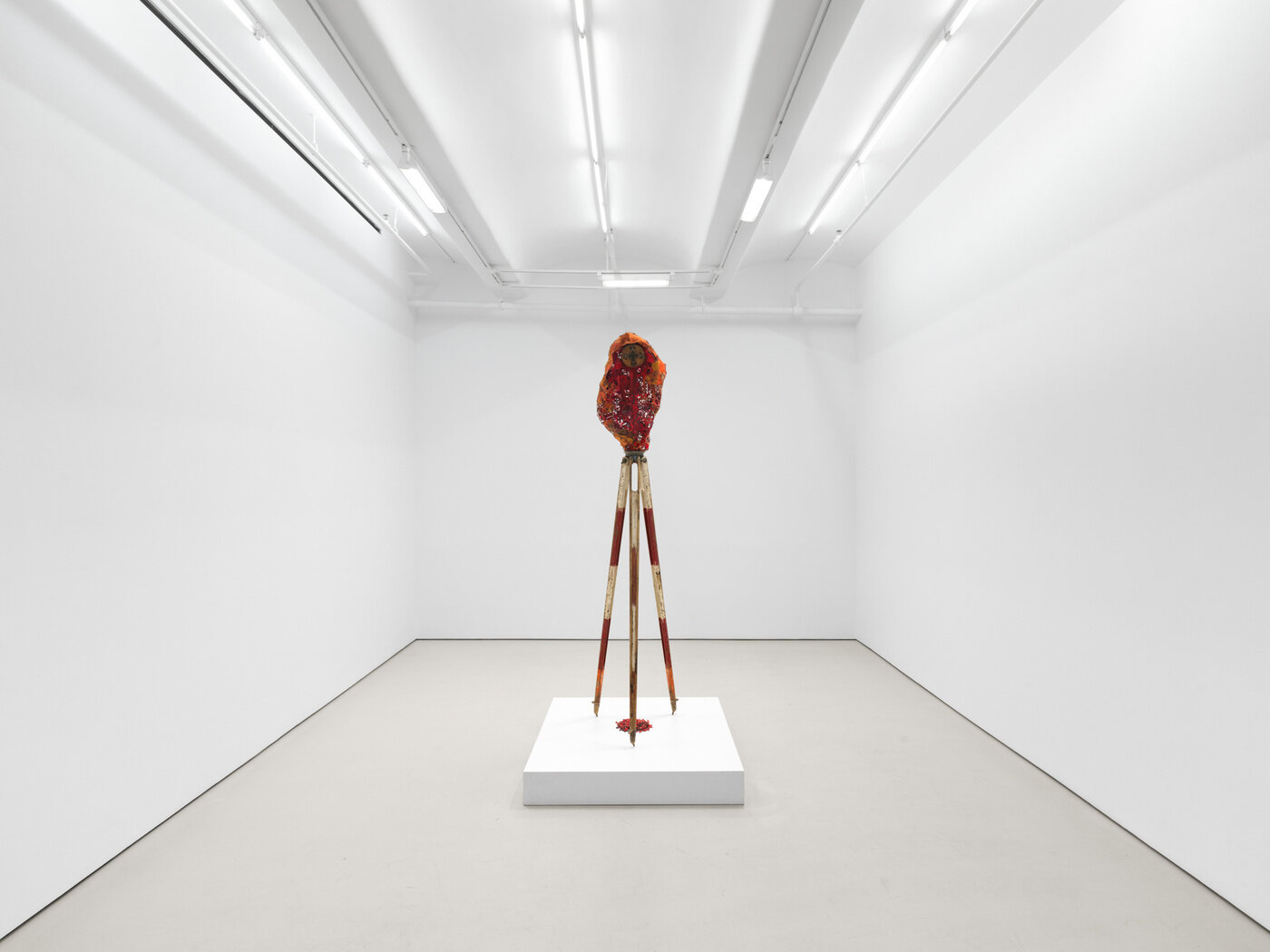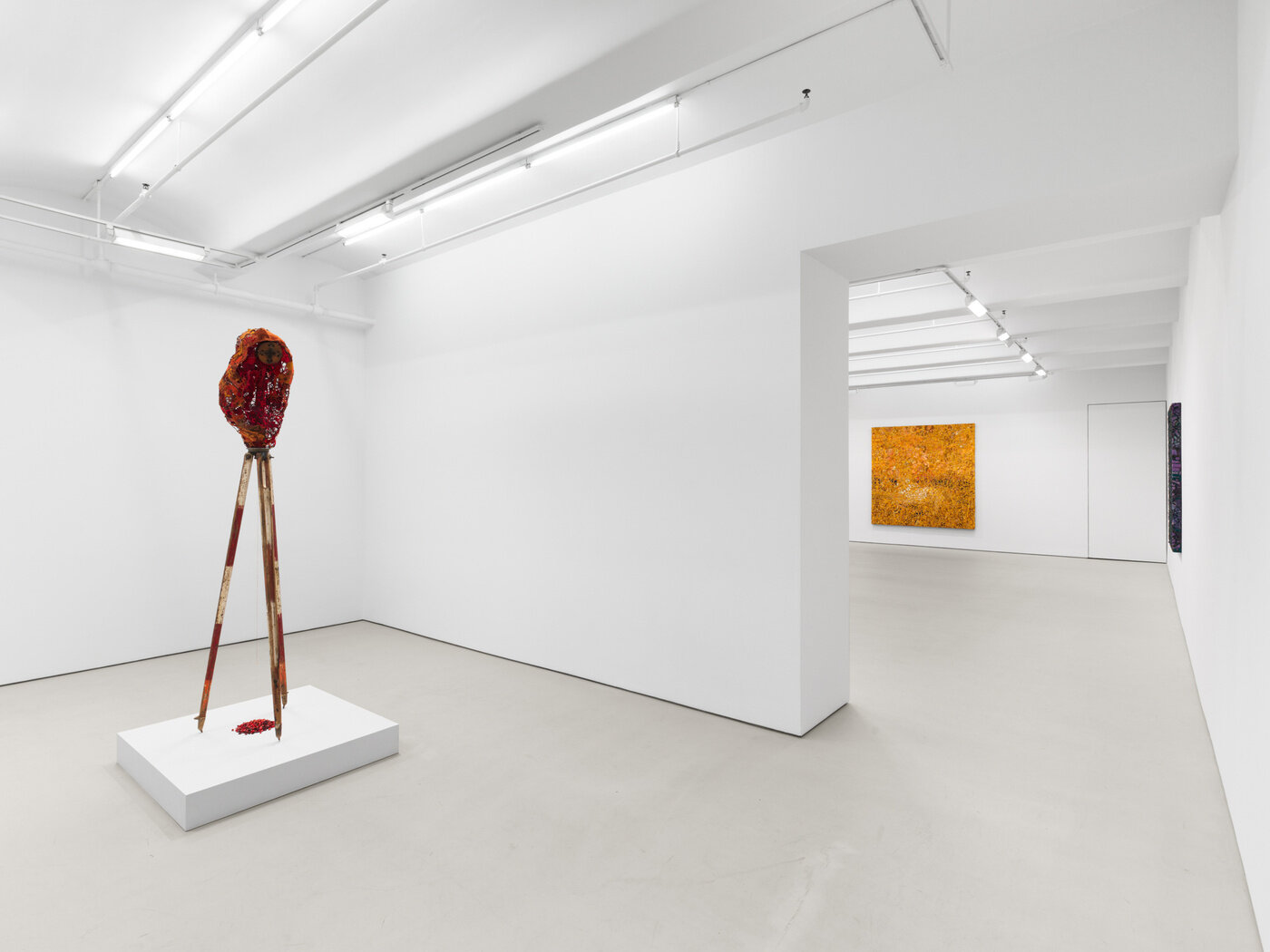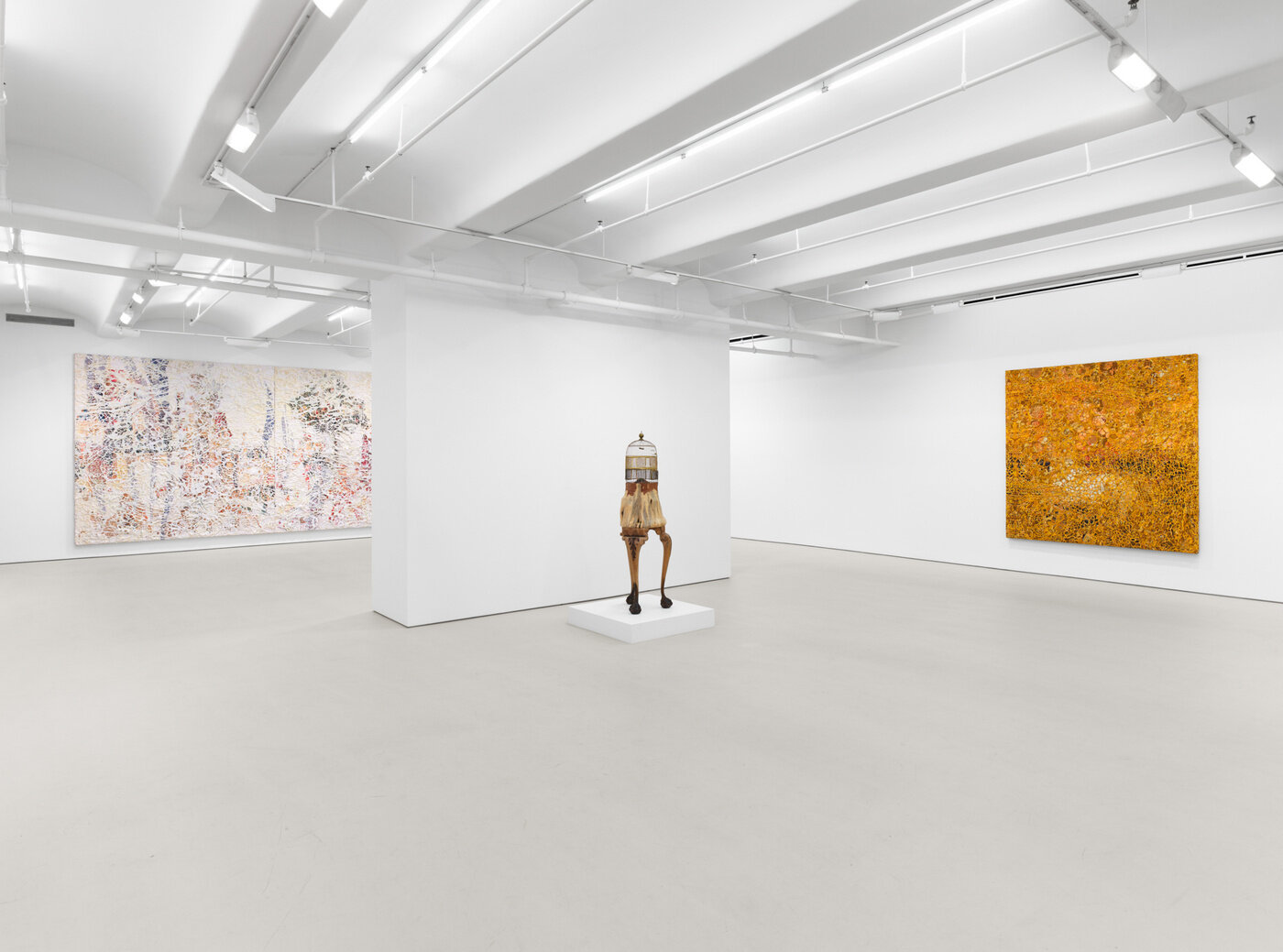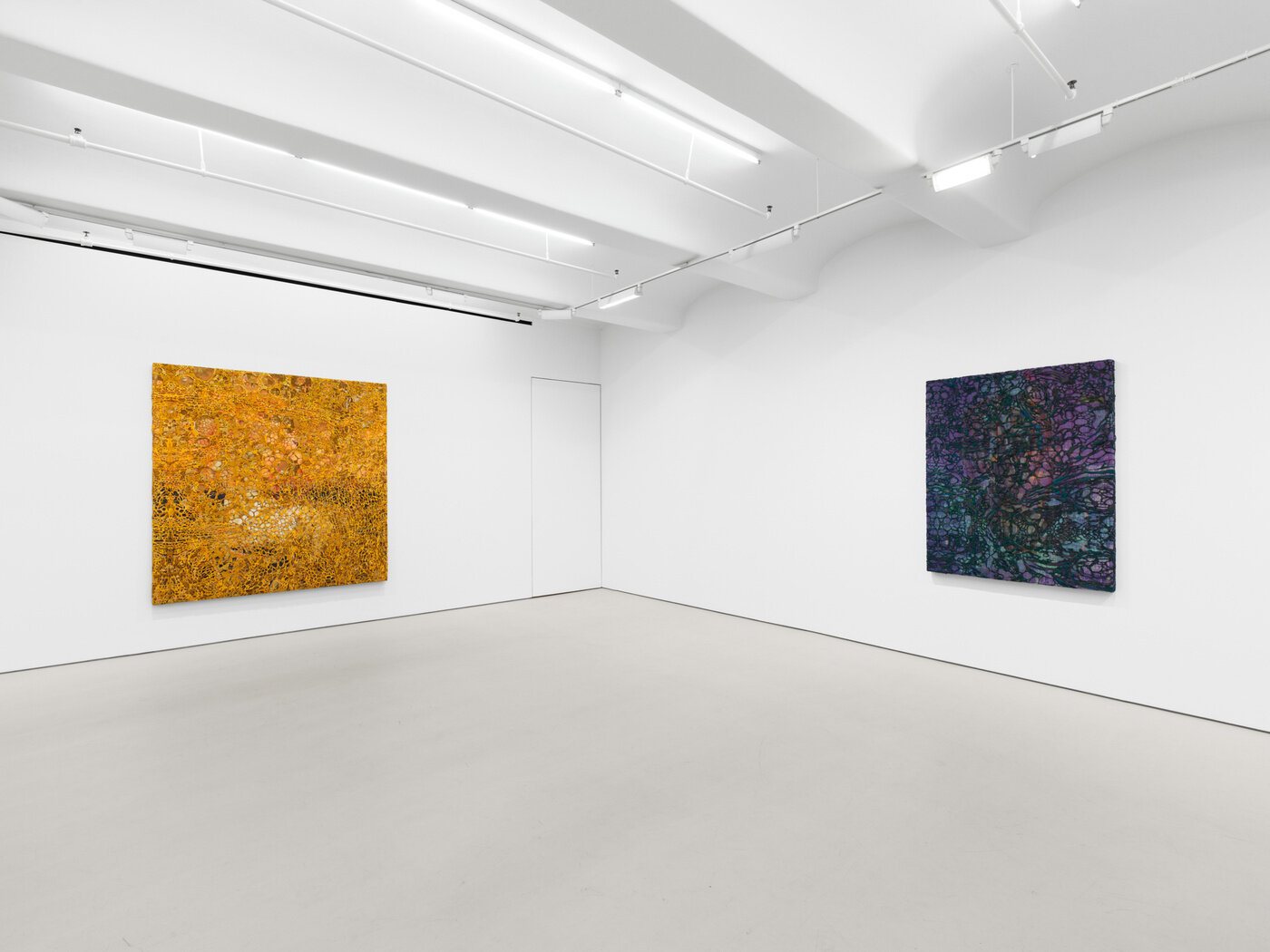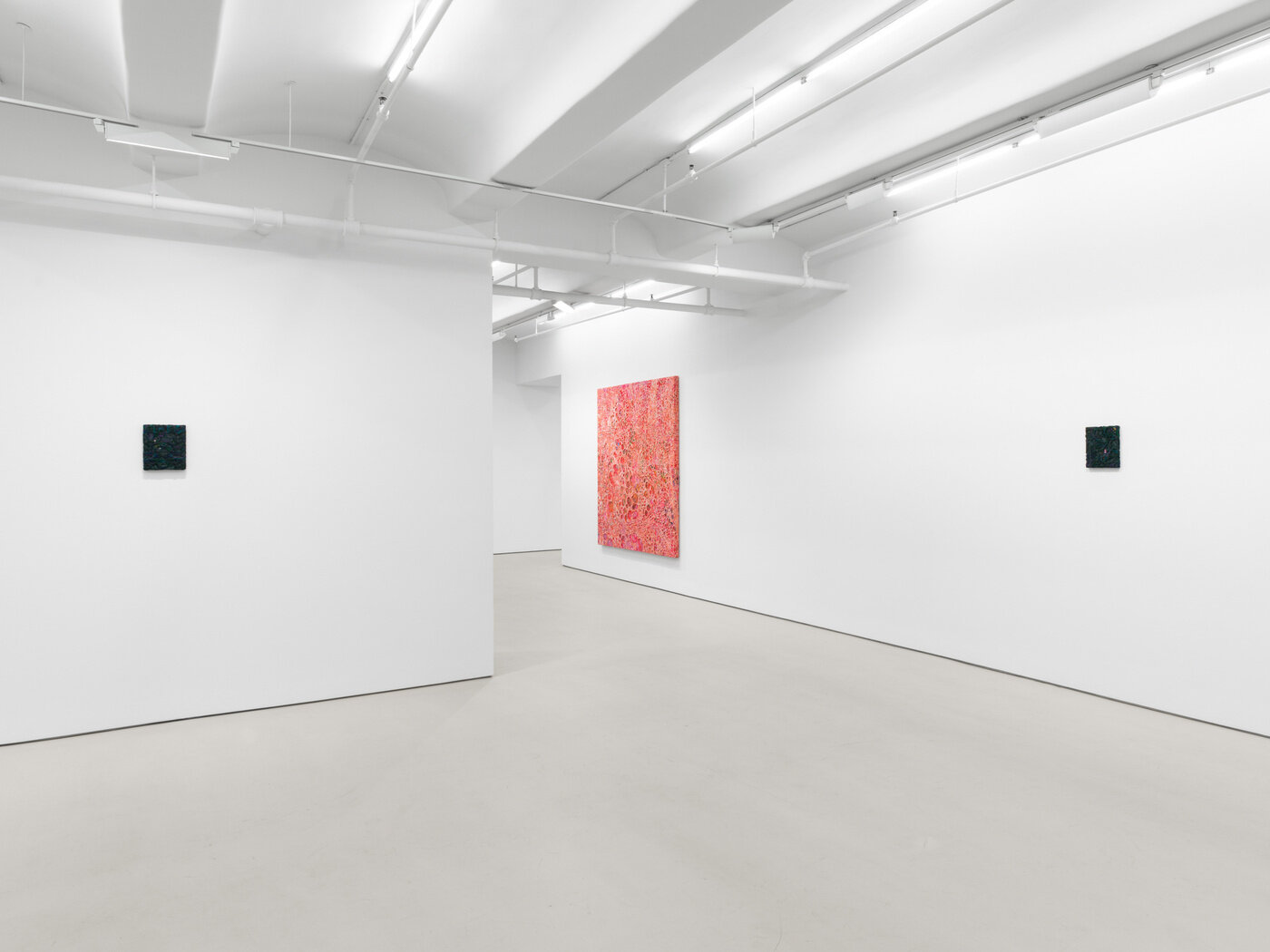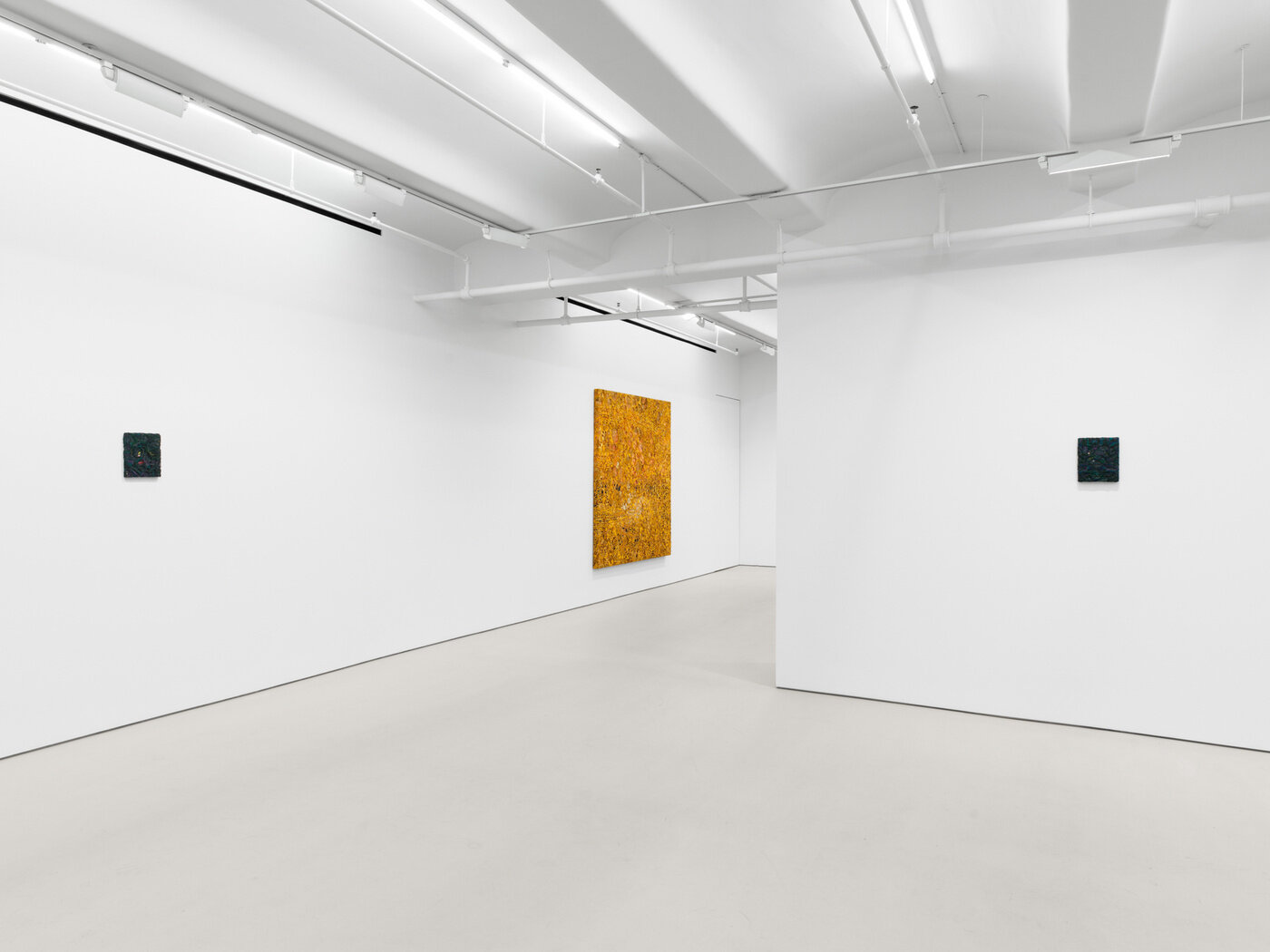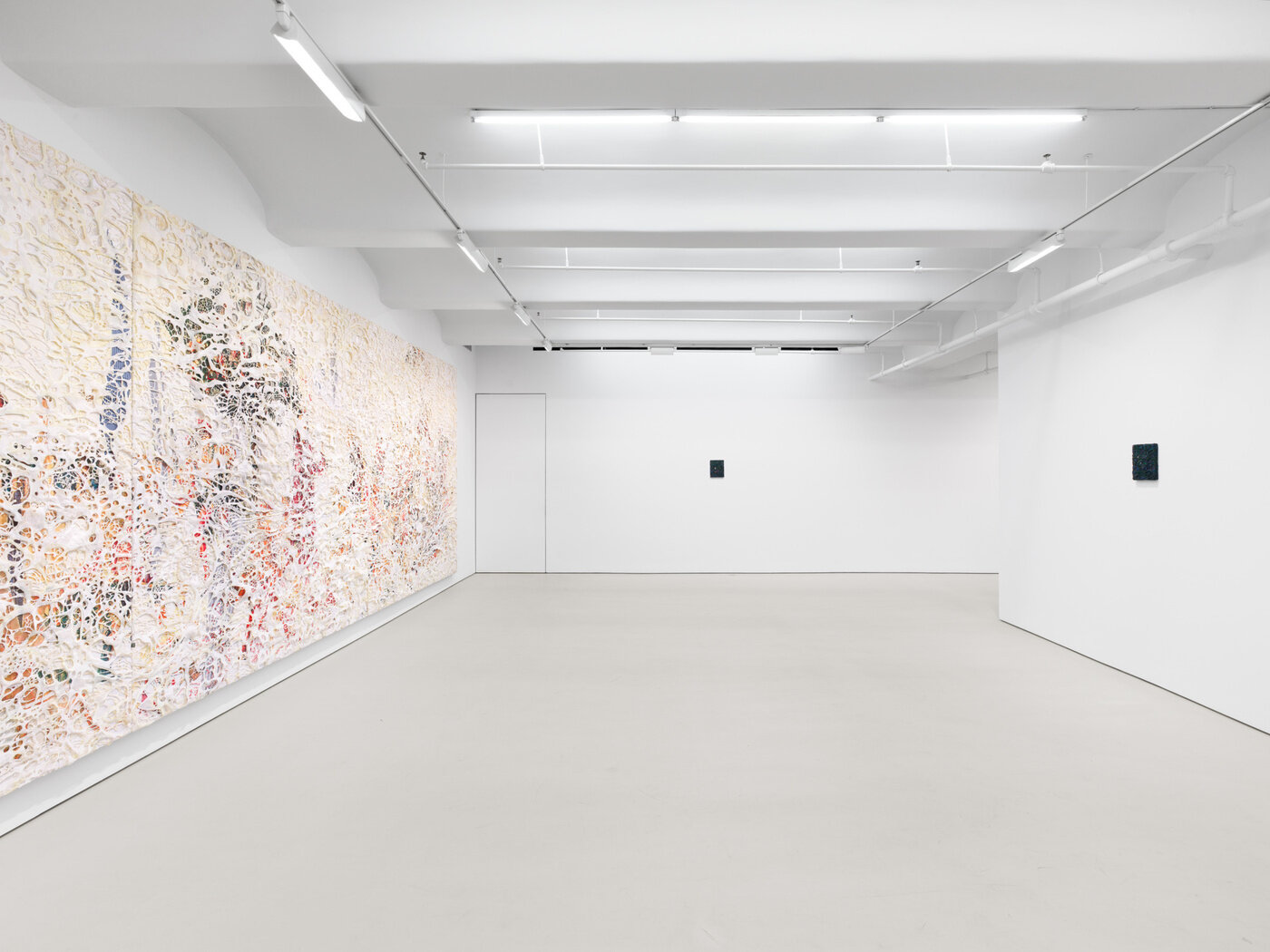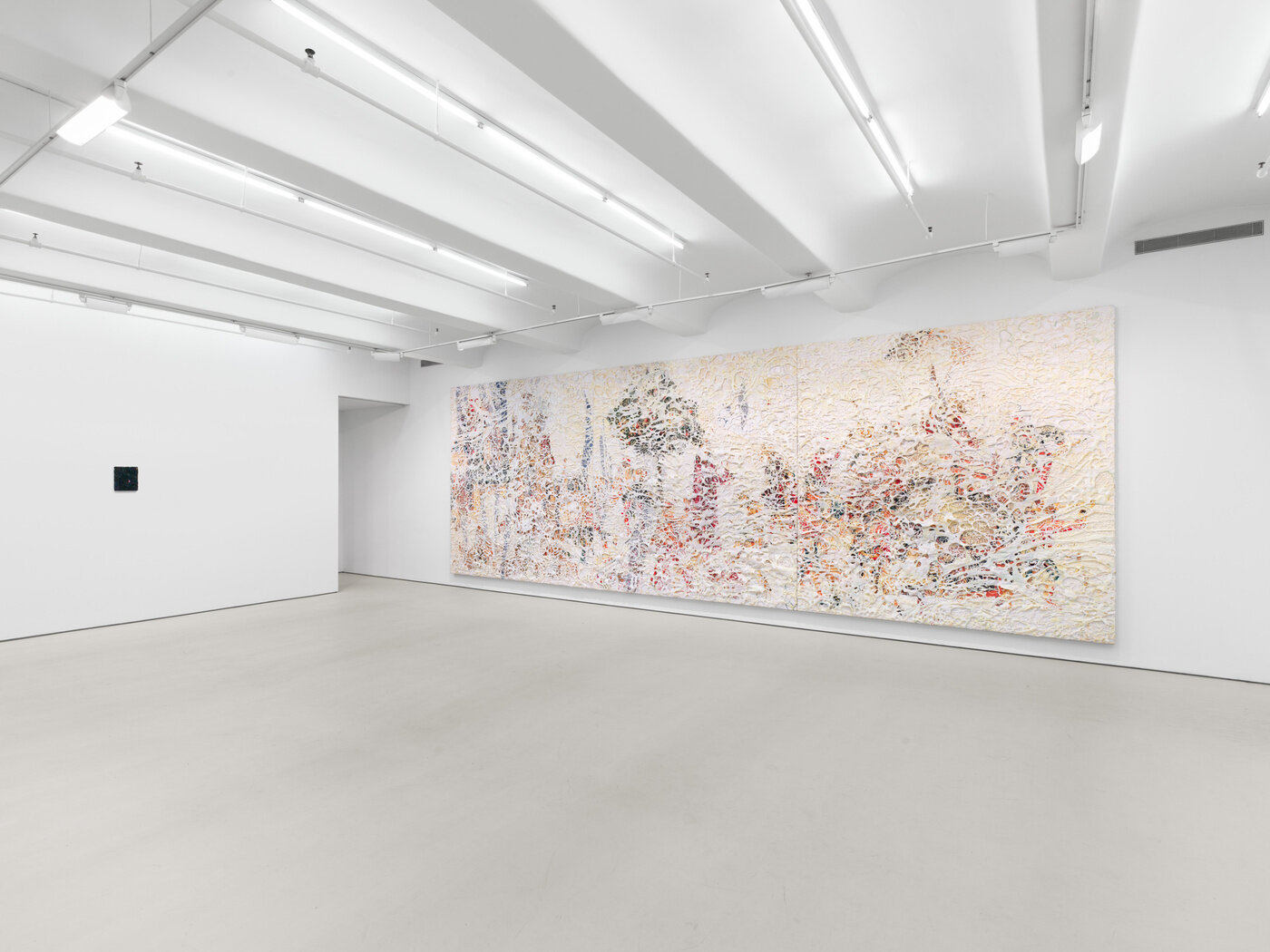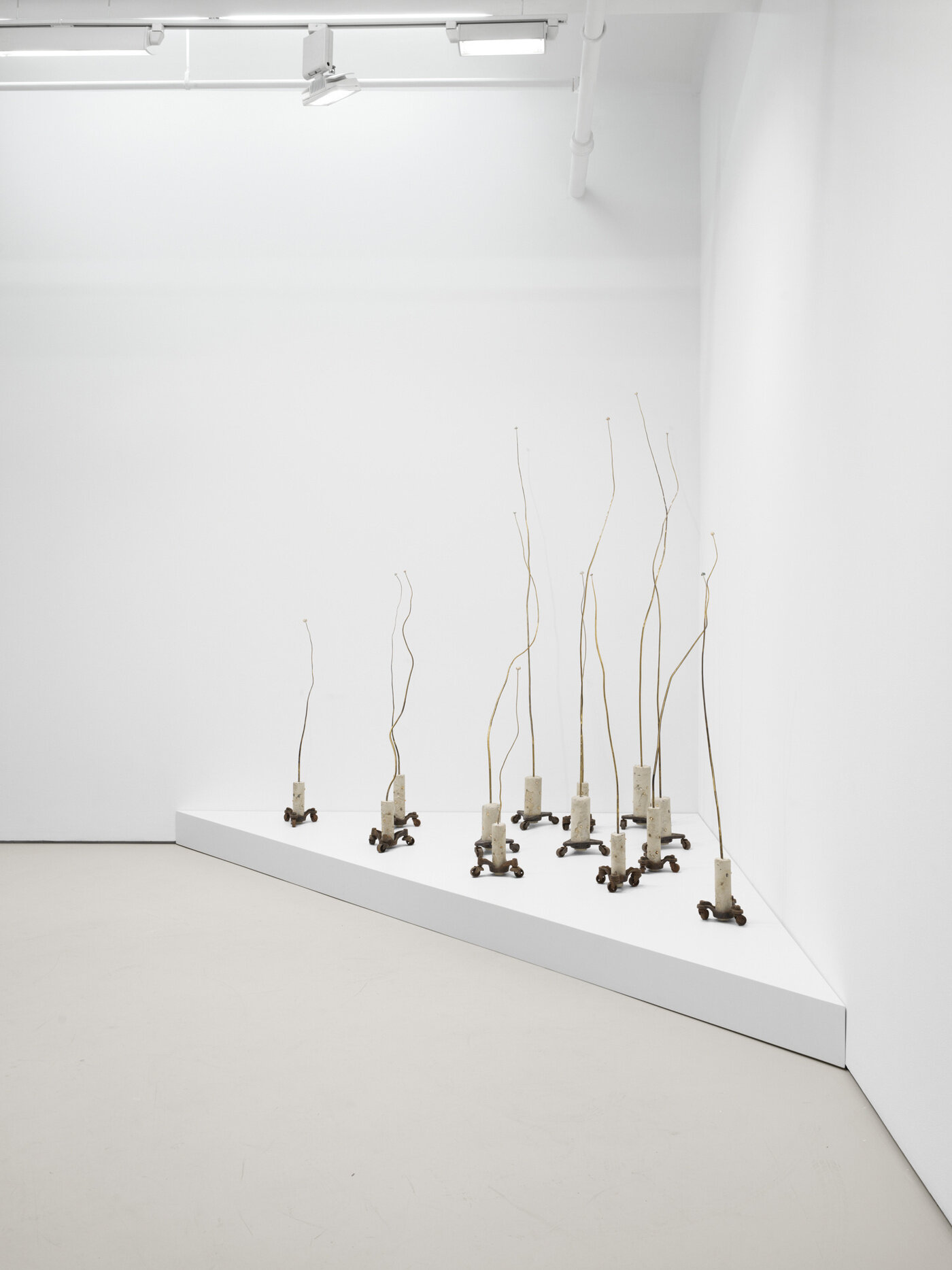Jesse Krimes: Cells
Works (Tap to zoom)
Press Release
JESSE KRIMES
Cells
November 2 – December 21, 2024
513 West 20th Street
Opening reception Saturday, November 2, 4–6PM
PRESS
Jack Shainman Gallery is pleased to present Cells, a new body of work by Jesse Krimes, marking his first exhibition with the gallery since his representation was announced in 2023. This exhibition will feature Krimes' latest series of abstract textile works and sculptures, exploring themes of confinement, control and resistance through a combination of image transfer, innovative embroidery techniques and repurposed materials. In Cells, Krimes appropriates art historical depictions of caging and the confinement of animals to examine broader social forces that seek to control and punish. The exhibition includes a series of large-scale abstract textile works that combine transferred images from canonical paintings with complex layers of embroidery drawn directly from microscopic images of cancerous cells. Krimes' process of removing diseased cells from these images to reveal only healthy tissue serves as a metaphor for resilience, transformation and the potential for redemption, even within systems of oppression. His works offer a radical reimagining of punitive structures, illustrating how such systems can evolve into frameworks of care and liberation.
The animals depicted in the embroidered abstractions carry a dual symbolism: they represent historical narratives of violence and subjugation, while their defiant gazes suggest resilience and the possibility of transcendence beyond the oppressive systems that have defined them. Krimes’ work is an intersection of personal narrative and larger social critiques, revealing both the visible and invisible structures of power. His unique approach to textiles, embroidery and sculpture elevates his exploration of incarceration, justice and the human spirit. Krimes, who draws from his personal experience of incarceration, scours centuries of art history to expose the prevalence of images that depict punishment and control. By recontextualizing these images in his work, he interrogates how society has historically represented justice while simultaneously offering a new vision for how these systems can be reshaped. Krimes’ new large-scale embroidered abstractions that anchor the exhibition expand upon the work he was making during and after his incarceration. Among the textiles he uses as his substrate are pieces given to him by people currently and formerly incarcerated, upon which he hand transfers the art historical images. The exhibition also features three sculptures that reflect on the mechanisms of power, control and liberation. Using stones sent to him by currently incarcerated individuals, Krimes wraps them in thread and arranges them into symbolic compositions. One sculpture organizes the stones into antagonistic groups, while another places them under the scrutiny of observation, evoking the concept of the panopticon and its prevalence in broader societal systems. The final sculpture, consisting of thirteen individual forms, shows the stones both encased in cement and presented atop elegant brass stems, suggesting a potential for transcendence beyond confinement. By organizing the exhibition around punitive ideologies and the art historical depictions of confinement, Krimes not only critiques these systems but also opens a dialogue about alternative futures. His intricate use of textiles evokes themes of care, domesticity and fragility, offering a poignant metaphor for navigating the psychological, emotional and social labyrinths of human existence.
Jesse Krimes (b. Lancaster, Pennsylvania, 1982, lives and works in New York City and Philadelphia) is a multimedia artist whose work explores societal mechanisms of power and control with a focus on criminal and racial justice. While serving a six-year prison sentence he produced and smuggled out numerous bodies of work, established art programs, and co-created artist collectives. He is the Founder and Director of the Center for Art & Advocacy, the first national organization dedicated to supporting justice-impacted creatives. Krimes also successfully led a class-action lawsuit against JPMorgan Chase for charging formerly incarcerated people predatory fees after their release from prison.

